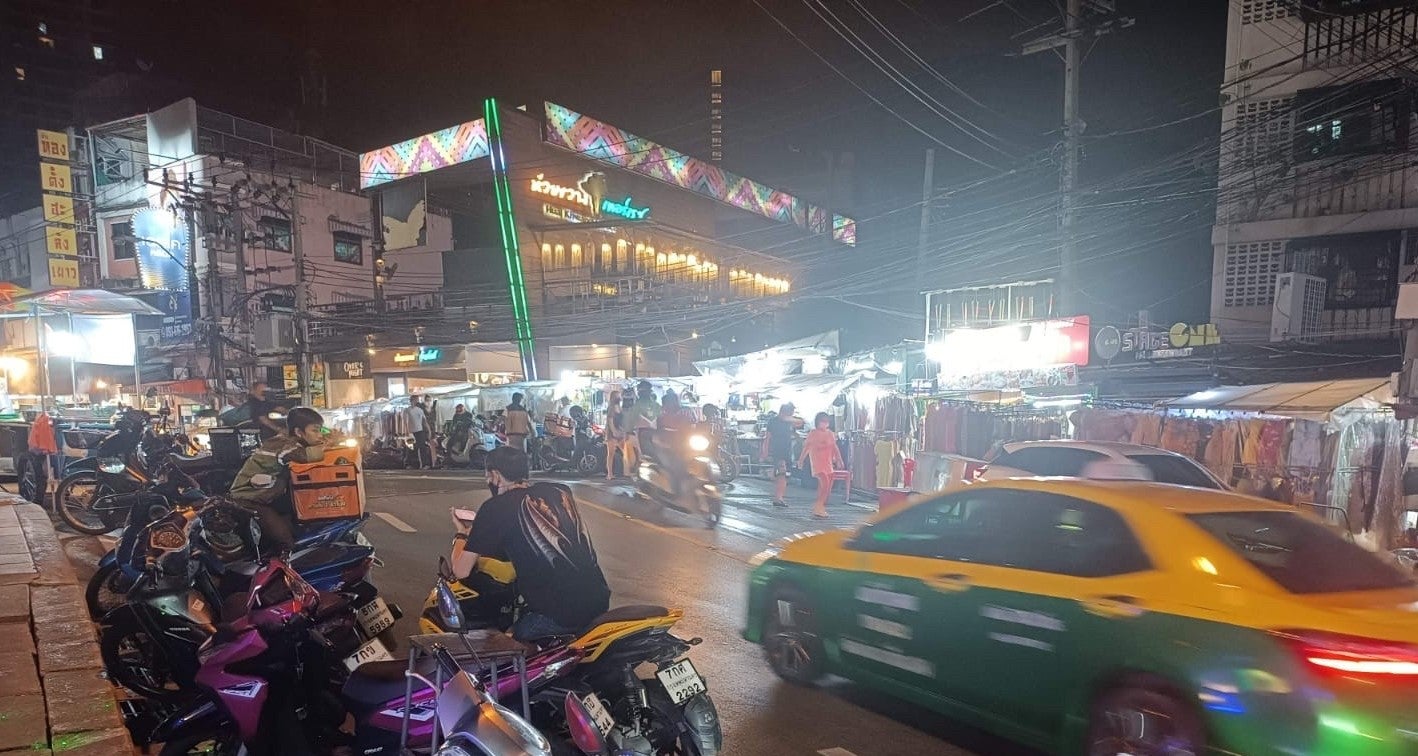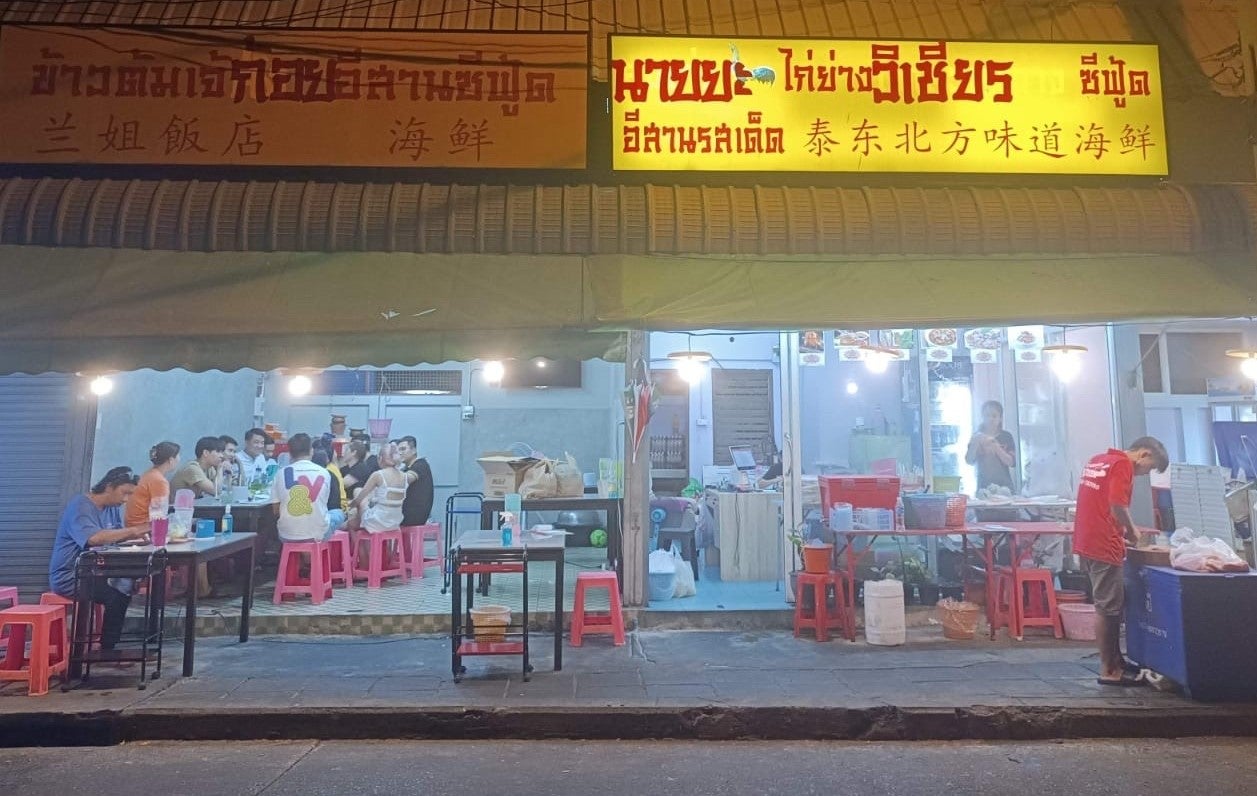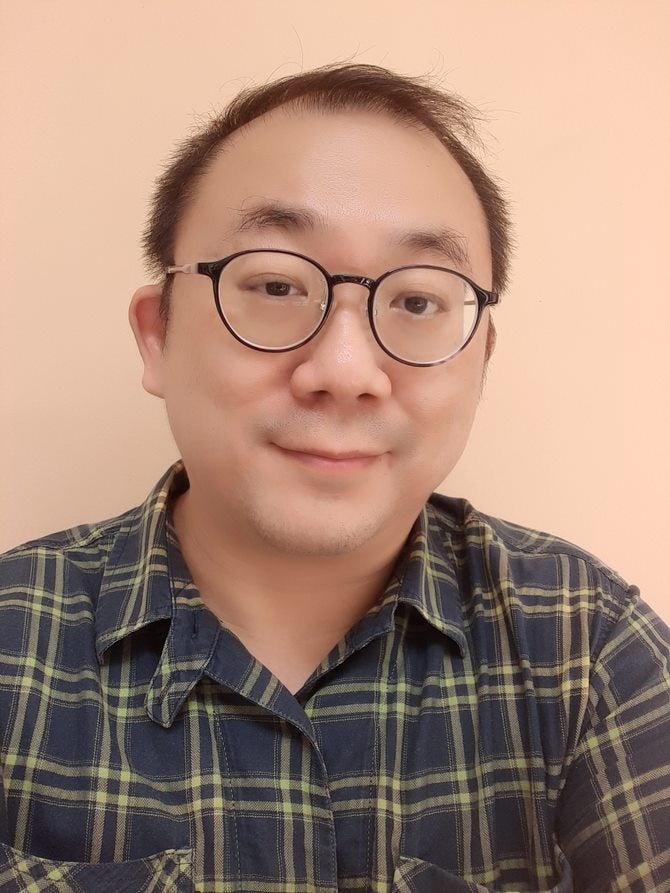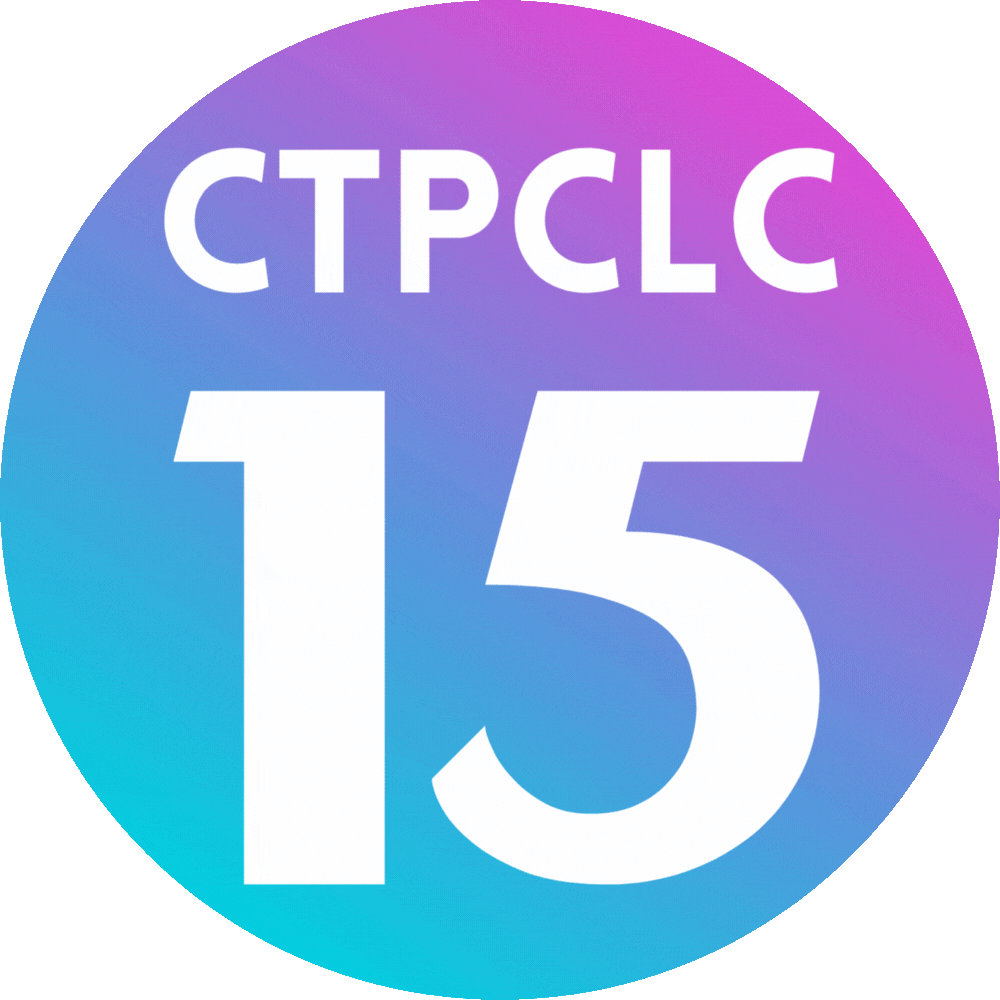Reflections from the Field: Bangkok’s Huai Khwang Night Market
Kevin S.Y. Tan, 30 June 2022
In Bangkok, just beyond the tourist belt of malls, historical sites, novel attractions and its colourful night life, what is sometimes less talked about are informal street-level markets that emerge within various neighbourhoods of the city’s urban landscape. One of them is the Huai Khwang Night Market along Ratchadapisek Road, named as such as it is the only major street-level market situated within a larger district of the same name. The market is nestled within a relatively lower income community that is increasingly surrounded and contrasted with private condominiums, massage parlours and a range of both tourist-class and high-end hotels in recent years. As a night market, Huai Khwang’s nocturnal community comes alive by the early evening around dinner time and often lasts till the early hours of the morning just before sunrise.

A typical busy night at Huai Khwang’s Night Market (Photo: CTPCLC/Kevin S.Y. Tan)
Over the years, the market has become very much the heart of Huai Khwang’s community, as it serves both the needs of its residents, locals who transit regularly through it, and a growing number of tourists who are attracted to its character and an opportunity to visit sites somewhat off the well-beaten tourism track in Thailand. Starting from a major junction off Ratchadapisek Road, the night market stretches into a residential neighbourhood for a length of around 700 metres along Pracha Songkro Road. On both sides of the road, either within two or three storied buildings and along the street, one can easily find an entire range of affordable Thai street food lining both sides of the road. At the same time, amenities such as pharmacies, clinics, fruit sellers, hairdressers and beauticians can be found. There are also at least three 24-hour 7-11 outlets, along with numerous sundry shops, a wet market and other stalls selling a broad assortment of clothing and footwear. In addition, the neighbourhood is famous for a popular shrine that is mainly dedicated to the Hindu deity Ganesha, which has served as a hub for fortune tellers, a popular industry in Thailand.
 Street dining at Huai Khwang Night Market (Photo: CTPCLC/Kevin S.Y. Tan)
Street dining at Huai Khwang Night Market (Photo: CTPCLC/Kevin S.Y. Tan)
When the Covid-19 coronavirus pandemic struck Thailand as it did to the rest of the world, the livelihoods of many were greatly affected. Huai Khwang’s Night Market was no exception. However, what is perhaps most remarkable is the rate in which it recovered when conditions gradually improved in the first half of 2022. Compared to several other day or night markets that were created for the sole purposes of catering to tourism in the city centre and its vicinity, this night market has proven to be more resilient than its competitors. The question is, of course, why? The answer can be a complex one, but a very likely factor has been the highly organic nature of Huai Khwang’s Night Market. This is because the market does not exist simply for its own sake but is highly embedded within the broader community that encapsulates it. For it is a market that was not self-consciously nor solely created for commercial interests, but instead serves an important social and functional need within a community.
It may also be argued that the market itself has spontaneously evolved into an integral part of the community that resides around and within it, as it plays a key role in the process of place-making, which in turn contributes to a sense of belonging. Very often, therefore, what contributes to the development of a community are really the little practices and experiences of everyday living that connect people, more than anything else. This can be realized in the simple act of sharing public spaces while dining together at the same time, or even the collective gestures of religious expression at the local shrine. We should, then, never underestimate the little things in life that make up a community. Huai Khwang’s Night Market is likely one example of how informal street level markets enable this.
 A gathering of friends at the end of a long day (Photo: CTPCLC/Kevin S.Y. Tan)
A gathering of friends at the end of a long day (Photo: CTPCLC/Kevin S.Y. Tan)
 Kevin S.Y. Tan is a sociologist and cultural anthropologist, currently an instructor at the Chua Thian Poh Community Leadership Centre. Urban street-level markets as part of informal economies and community-building are a research interest of his.
Kevin S.Y. Tan is a sociologist and cultural anthropologist, currently an instructor at the Chua Thian Poh Community Leadership Centre. Urban street-level markets as part of informal economies and community-building are a research interest of his.
Kevin teaches CLC3304A: City, Culture and Community where the module examines the complex relationship between urban settings in a city and the communities that co-exist within it. Particular attention on the social-cultural dimensions that influence a person’s lived experience will be explored as part of integration and engagement issues within a community.
Contact Kevin if you are interested to discuss more or learn more about the modules he teaches in CTPCLC.


